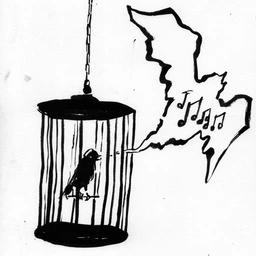This problem seems like it was already solved using satellites.
The only real niche I see for this is during natural disasters, which could get a cell network back online in a limited capacity. But even then, it seems like it would be cheaper to just run some more diesel out to the cell towers’ backup generators.
The issue with that is getting information in and out of the disaster area. It’s all well and good having a cell tower online, if the back haul network is down.
Technology like this would, in theory, be able to reach outside the disaster area and get clear communication with the outside world.
Oh yeah, let’s build our infrastructure project based on tech that requires a large amount of helium. You know, that element that is extremely hard to store and transport. Yes, the one that’s already scarce and is required for vastly more important technologies.
I don’t see what the problem is, it’s not like helium production is a byproduct of an energy sector were trying to rapidly divest from…
They should just use hydrogen… you won’t even have to worry about recovering anything if there is an accident.
Just what Comcast needs, a fleet of very slow cruise missiles.
Can’t wait for them to park their buoyant IED router above my house if I don’t upgrade to the game day package.
Great for the 4th of July celebrations!
It seems today’s pattern in general. Such projects go for something hardly achievable, don’t achieve it, give us all that feeling of passive frustration, and divert attention.
I think it’s about hijacking discourse.
There are plenty of places on the planet which could use additional electricity, water, wired connectivity, normal roads. Or, say, security from armed apes with UN membership, like Azerbaijan.
It’s just that we’ve reached the stage where further development changes the balance of power.
seems today’s pattern in general. Such projects go for something hardly achievable, don’t achieve it, give us all that feeling of passive frustration, and divert attention.
I think it’s kinda a byproduct of venture capital funding. With the Fed prioritizing low interest rates for the last decade, investors are a lot more willing to stick their money in yolo financial schemes.
There are plenty of places on the planet which could use additional electricity, water, wired connectivity, normal roads.
Pssh, why build physical things when you can just gamble on things like virtual currency, virtual intellect, or even virtual reality… /s
Or, say, security from armed apes with UN membership, like Azerbaijan.
Lesser Armenia has really flown off the handle lately. I don’t really know why they have UN membership, Azerbaijan is basically “what if the Saudi tried to build Singapore on the Caspian sea”.
Pssh, why build physical things when you can just gamble on things like virtual currency, virtual intellect, or even virtual reality… /s
… But someone will consistently collect money of real value if they have influence on the discourse making people flock the way they want.
Lesser Armenia has really flown off the handle lately. I don’t really know why they have UN membership, Azerbaijan is basically “what if the Saudi tried to build Singapore on the Caspian sea”.
With some KGB flavor, but yes, I was going to argue Saudis are not that bad, then remembered Hashoggi, al-Qaeda, ISIS, Yemen, the whole sharia state thing, and decided that the metaphor is fine.
Problem is that a lot of that remaining third live in countries where the state will actively try to destroy the air craft to keep their people insulated from the wider global internet
Who needs food and clean drinking water when you can have Internet.
Democratization of communication resources substantially helps other facets. I hate this sort of knee jerk whataboutism. Aid can and should be multifaceted.
Internet by itself is not democratization of anything anymore. Until a cure is found to centralism, censorship and anything real being hidden by oceans of weaponized information sewage.
I agree, but there is a pretty substantial list of stuff to arrange before internet becomes a thing people need… Granted, internet can help with some of them. But focussing on the primary things to keep people alive and allow them to Prosper seems good form.
“Don’t you people have phones”…
Just an example, but I’ve worked in central Africa and was recently at a very rural hospital where there was no running water and no electricity (other than local solar), and while there they received an airborne blood delivery via drone from a facility about 100 miles and about 4 hour drive time away. This was extremely helpful and managed through Internet communication.
Fair enough
Internet access means access to information on all sorts of things that can improve their day to day lives.
Physical resources are also important, obviously, but the free availability of information resources genuinely is life changing.
Life changing but not necessarily for the better.
They can order both on Amazon duh…
One Laptop Per Child energy.
The router crashed will become far more literal than it previously was.
Anyone else remember Google(Alphabet)'s “Project Loon?” It was just like this but it failed.
Read more: Wikipedia Loon website
Doesnt starlink solve this?
One man controlling access to a sizable percentage of the world’s internet access doesn’t solve much.
I think there are a lot of ways this is technologically solvable. Imho this is an economic challenge, not a technological one.
Yes and there is also OneWeb and eventually Kuiper.
And food, but let’s get Internet first to ask them if they’re hungry.
Well yeah but then they can order Uber eats. Solved world hunger right there for you.
Land cables are not that expensive.
Unless your population is incredibly sparse, land fiber or adsl cables are the way to go.
I live in a region which have 25 hab/km^2 which is one of the lowest in the world. And we have a massive cable implementation that covers more than 95% of the population.
The problem is money. And if you don’t have money for cable you don’t have money for XVIII century internet carrying blimps.
Land cables are not that expensive but they are in charge of the State, things like balloons or Starlink are the charge of the user and the company, the State doesn’t get the money but doesn’t need to build infrastructures
and the company
Surely the company would never be just as authoritarian as the state!
~ [cue anti-consumer subscription models and user policies]
If nothing else, at least companies can’t force you to pay for their services at gunpoint (yet).
They can use the state to do that for them
Many years ago my grandfather was involved in an air force test of aerial defense platforms that used balloons.
The idea was you could station these things all around the country and at the first sign of an attack you could have missiles launched from 10k feet to anywhere from anywhere.
The test encountered two problems that caused them to abandon the idea.
These balloons were incredibly easy to shoot down. Which would, presumably, rain volatile rocket fuel and munitions down on whatever was beneath them.
And if a missile launched, but failed to separate completely from it’s housing, it would carry that balloon on a wild, unpredictable trajectory, until it collided with something or it decided it had reached it’s detonation time.
Ideally, however, these would not be shot down.
That’s just it, they’re an easy target, and communications infrastructure is one of the first things you want to control or eliminate if you’re taking hostile territory.
Yes, and? I don’t believe these are replacing any existing infrastructure, but are for places that have no infrastructure for the internet. They could drastically improve things in those areas, and if those place became a warzone sometime in the future they’d probably be pretty fucked with or without proper land based infrastructure.
Ideally internet debates wouldn’t get THAT heated though.
This has been a popsci fantasy for a quarter of a century or more. Google tried it and gave up.
Orrrrrrrr…hear me out…
We ALL just stop. We say no to these overinflated bundle prices, we say no to corporate censorship, we say no to the human trafficing. Elon musk will have paid 43 BILLION dollars for…nothing.
Besides the cost of terminals, this problem has been solved by starlink and soon project kuiper.
I guess that’s fine but you also have to teach people how to use the internet.
If people are from a culture that typically doesn’t have internet access then they’re not really going to understand what they can do with it.










